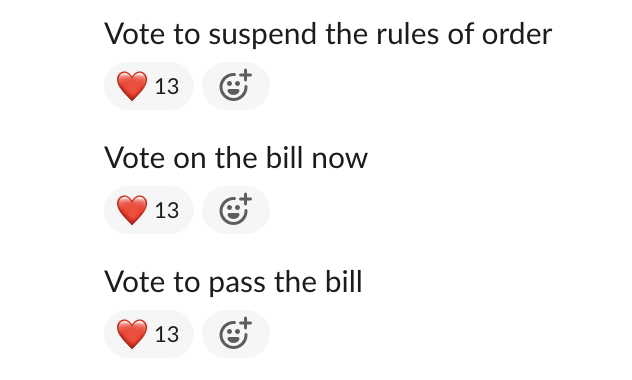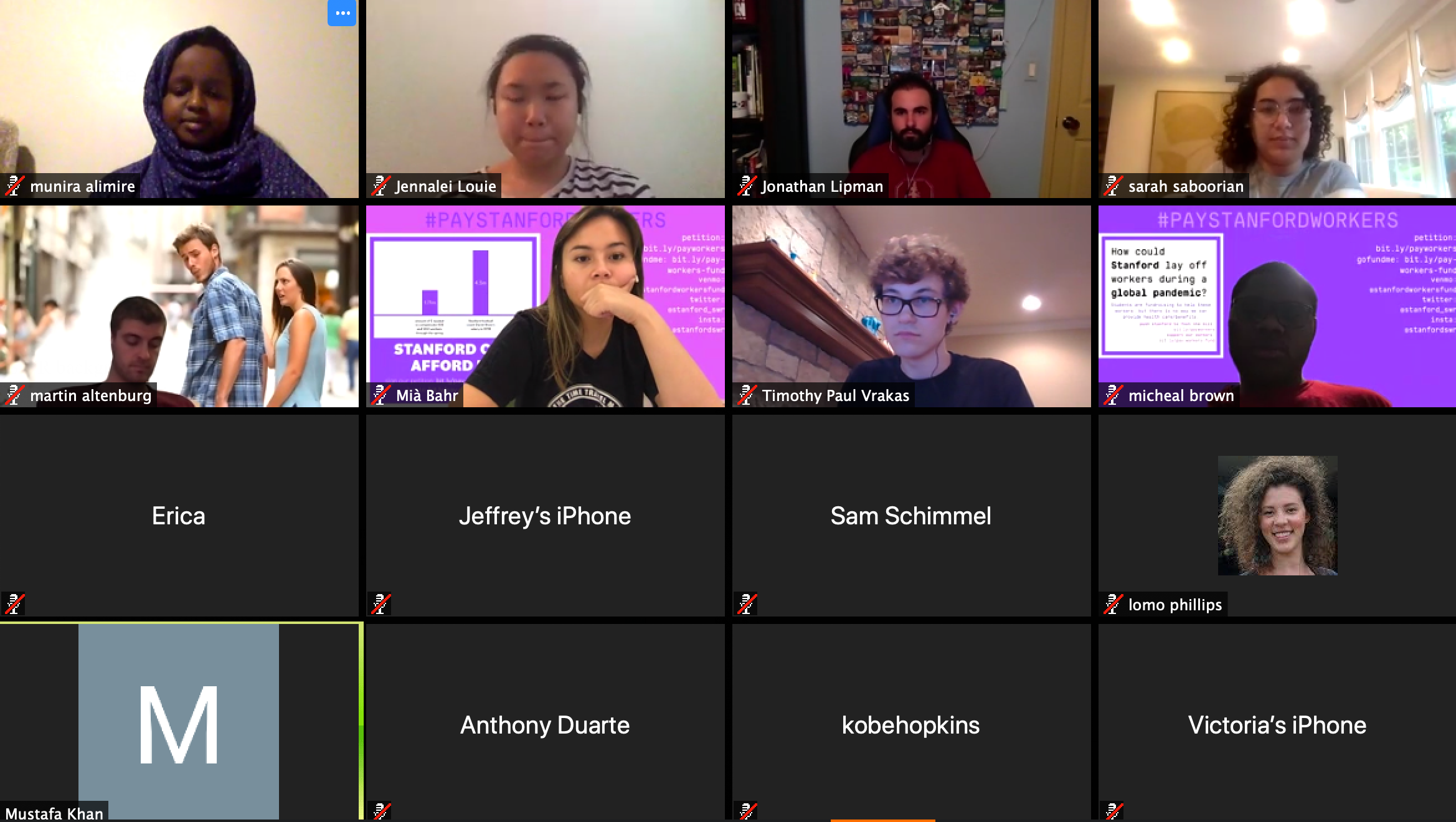Senators are raising concerns that increased police presence on campus is causing students to feel threatened.
Senators also discussed ongoing challenges for students amid coronavirus disruptions and the Senate’s potential structure in spring quarter at their Tuesday Zoom meeting. No new bills were introduced.
Senators for spring quarter introduced a host of concerns for students still at Stanford, ranging from issues with students being reassigned to different dorms and food safety to potential negative impacts of increased police presence on campus.
Students have reported police coming into dorm lounges and “harass[ing]” students, according to Senate Chair Munira Alimire ’22.
Senator Kobe Hopkins ’22 said that increased police presence was leading students of color to feel anxious and threatened, especially those with past negative experiences with police.
“Police are going to lounges where people are social distancing while watching movies; they’re going up to windows with their flashlights,” Hopkins said. “It’s one thing to claim campus safety, but they’re causing fear in people and disrupting people’s lives.”
Stanford Department of Public Safety (SUDPS) spokesperson Bill Larson wrote in a statement to The Daily that SUDPS personnel are not entering residents to search for possible violations of the county’s shelter-in-place order or have been instructed to shine flashlights into rooms.
Larson wrote that SUDPS has conducted building walk-throughs in conjunction with Residential & Dining Enterprise (R&DE) staff and searched residences that were thought to be unoccupied that had an unlocked or opened door.
“DPS welcomes the opportunity to develop relationships with those who are on campus,” Larson wrote. “We are all challenged by the COVID-19 pandemic. We welcome any student who would like to meet virtually with a deputy and have a conversation.”
Senators also commended the Associated Students of Stanford University (ASSU) Support Fund. The fund has disbursed $191,000 to about 1,400 students, 65% of whom were graduate students, according to ASSU Director of FLI Community Outreach Jeffrey Rodriguez ’20.
“It’s a great win, especially when taking into account the impact you can have on students during this time when the administration took a bit of a minute to provide financial aid to people,” Rodriguez said.
Senator Martin Altenburg ’20 added that the Financial Aid Office could be “touch and go,” though he said he would encourage those facing financial difficulties to still reach out to the office.
As the quarter continues, the Senate will continue to hold weekly meetings over Zoom.
Since the Senate’s last in-person meeting on March 4, senators have voted on bills through Slack, including a worker solidarity resolution and bills to redirect funding to the ASSU Support Fund.

Senator Tim Vrakas ’20 suggested that senators host a Zoom call before voting in the future on urgent bills, although he added that he did not expect many more urgent bills to come up.
“Hopefully, we’re a little bit over the hump of emergency things,” Vrakas said.
ASSU elections will be held on May 18 and 19, with campaigning happening virtually the week before. The Elections Commission is considering reopening the petitioning period and is expected to have a decision by the end of the week, according to Alimire.
“Some people will not be running anymore, and more people are also running because people are not going abroad,” Alimire said. “Things have changed a lot.”
This article was updated at 7:10 p.m. on Friday to include comment from SUDPS spokesperson Bill Larson.
